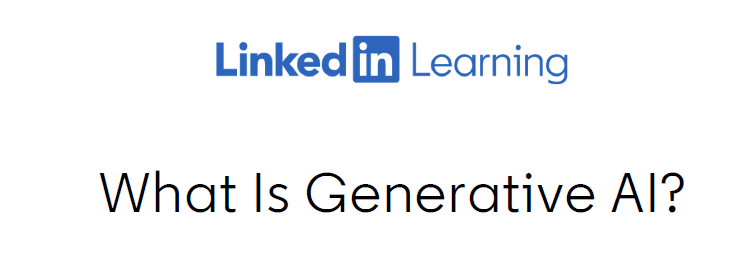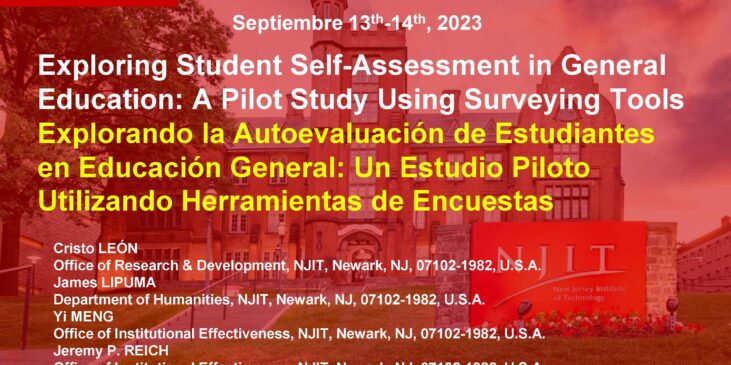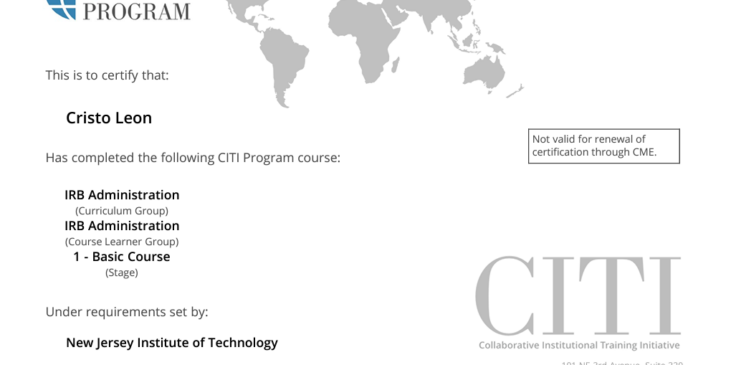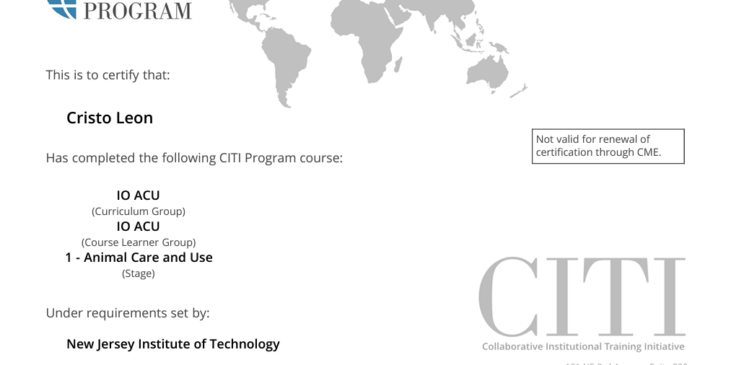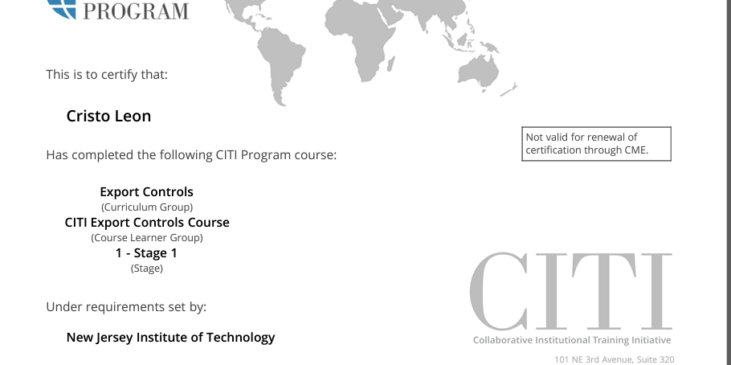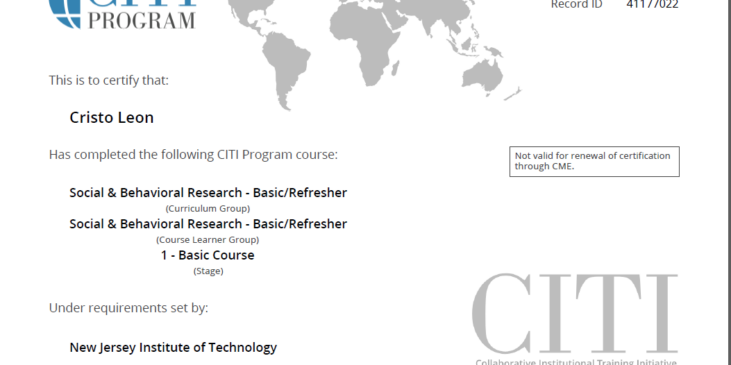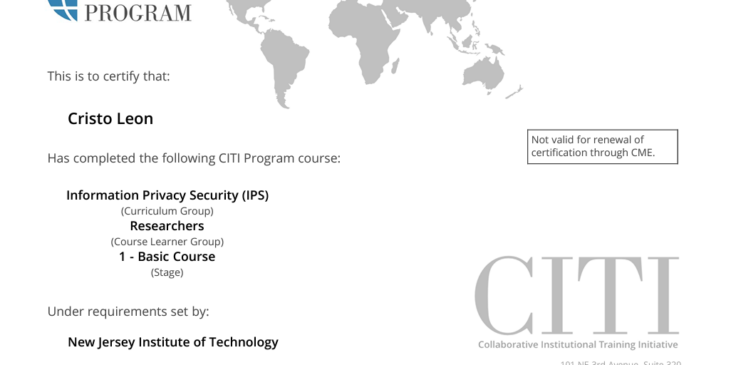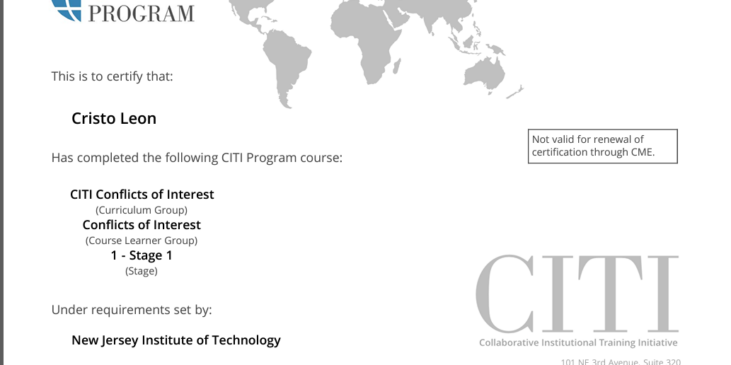Title: «What Is Generative AI?»The institution that certifies «Linked in Learning»First Completion Date 26-Sep-2023Latest Completion Date 26-Sep-2023Expiration Date NoneCertificate ID: 0fe13409a09c8cf98ac937d9cc0b5e8f7e4c8dfc989ab0ca275666262db4159d Verify ID at LinkedIn Learning Certificate of Completion Certificate
Cristo Leon to present at the Congreso Internacional de Investigación Academia Journals Tláhuac 2023
Our multidisciplinary team unveils a groundbreaking pilot study focusing on student self-assessment in General Education Requirements (GER) within a STEM university setting. Recently presented at the Congreso Internacional de Investigación Academia Journals Tláhuac 2023, the research employs a tailored survey based on AAC&U VALUE Rubrics to assess institutional effectiveness. It aims to harmonize educational benchmarks with student self-perception, providing novel insights into pedagogical approaches.
Cristo Leon to present at the 27th World Multi-Conference on Systemics, Cybernetics, and Informatics: WMSCI 2023 with Pioneering Keynotes
Cristo Leon to deliver transformative keynotes on AI regimes and effective trans-disciplinary communication at WMSCI 2023. Don’t miss it!
IRB Administration CITI Certificate
Title: «IRB Administration Course»The institution that certifies «CITI program«First Completion Date 14-Aug-2023Latest Completion Date 14-Aug-2023Expiration Date 14-Aug-2026Record ID 57412372 Verify ID at www.citiprogram.org/verify/?w127cbbba-0429-4193-ae82-bc187084a70d-57412372 Certificates
IO ACU CITI Certificate
Title: «IO ACU Course»The institution that certifies «CITI program«First Completion Date 14-Aug-2023Latest Completion Date 14-Aug-2023Expiration Date 14-Aug-2026Record ID 19177877 Verify ID at www.citiprogram.org/verify/?w361565b8-7155-4cb4-98d3-bfa521f50e46-19177877 Certificates
Export Controls CITI Certificate
Title: «Export Controls Course»The institution that certifies «CITI program«First Completion Date 12-Aug-2020Latest Completion Date 14-Aug-2023Expiration Date 14-Aug-2026Record ID 55846794 Verify ID at www.citiprogram.org/verify/?w778898a6-3bc5-4c58-ba01-74ce3d48b289-55846794 Certificates
SBR CITI Certification
Title: «Social Behavioral Research (SBR) Course»The institution that certifies «CITI program«First Completion Date 19-Aug-2022Latest Completion Date 19-Aug-2022Expiration Date 18-Aug-2025Record ID 41177022 Verify ID at www.citiprogram.org/verify/?w008f7df1-9140-4dbe-9d32-a106177e6f96-41177022 Certificates
IPS CITI Certification
Title: «Information Privacy Security (IPS) Course»The institution that certifies «CITI program«First Completion Date 18-May-2016Latest Completion Date 18-May-2016Expiration Date N/ARecord ID 19177880 Verify ID at www.citiprogram.org/verify/?wa806f494-a3aa-4c94-9333-461bb358b688-19177880 Certificates
COI CITI Certification
Title: «Conflicts of Interest (COI) Course»The institution that certifies «CITI program«First Completion Date 12-Aug-2020Latest Completion Date 12-Aug-2020Expiration Date 11-Aug-2024Record ID 35123686 Verify ID at www.citiprogram.org/verify/?wa3dfa91a-dfb9-4602-b469-b1e8c2d083eb-35123686 Certificates
Empowering the Future: The LiFE Project’s Phenomenal Impact on Girls’ STEM Interest.
Press Release FOR IMMEDIATE RELEASE Empowering the Future: The LiFE Project’s Phenomenal Impact on Girls’ STEM Interest. Newark, NJ, Wednesday, August 9, 2023 – The LiFE Project, a groundbreaking initiative funded by the National Science Foundation, has demonstrated remarkable success…

